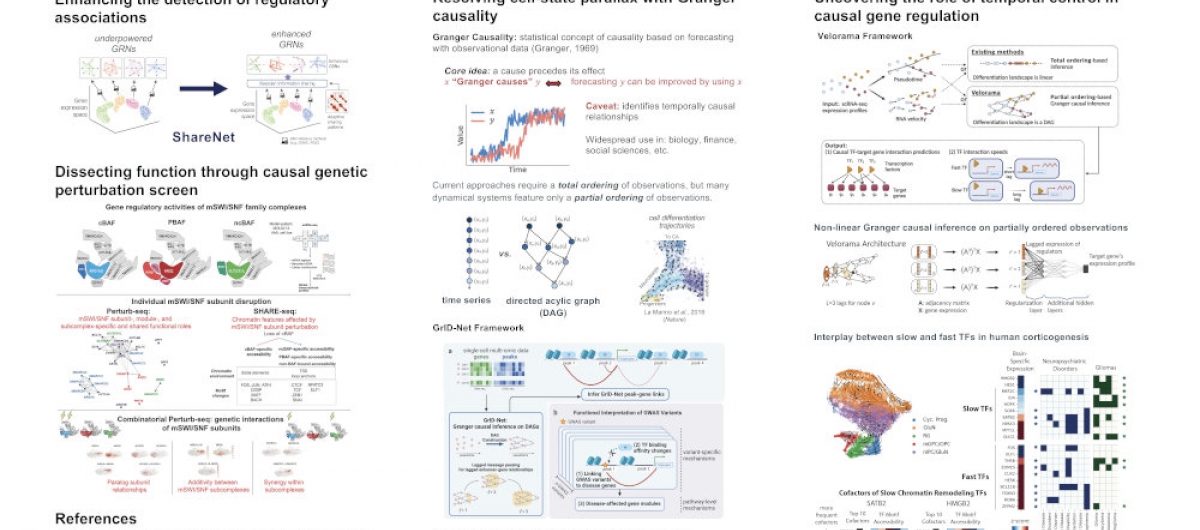Date:
Time:
Location:
Kiva Seminar Room (32-449)
Event Description:
Ph.D. Candidate: Alexander Wu
Advisor: Prof. Bonnie Berger (MATH, EECS)
Title: Towards causality in gene regulatory network inference
Abstract:
Understanding the coordination of biomolecules that underlies gene regulation is key to gaining
mechanistic insights into cellular functions, phenotypes, and diseases. Advances in single-cell
technologies promise to unveil mechanisms of gene regulation at unprecedented resolution by
enabling measurements of genomic and/or epigenetic features for individual cells. However,
unlocking insights from single-cell data requires algorithmic innovations.
This thesis introduces a series of methods for uncovering gene regulatory relationships
underlying cellular identity and function from single-cell data. Firstly, we present a framework for
enhancing the detection of statistical associations in small sample size settings for gene
regulatory network inference. We then describe the use of single-cell genetic perturbation
screens for determining the causal roles of critical regulatory complexes, focusing specifically on
its applications for revealing mechanistic insights about the mammalian SWI/SNF family of
chromatin remodeling complexes.
To bridge the gap between methods that identify statistical associations from observational data
and those that infer causal relationships using interventions, we also introduce a new category
of techniques that extends the econometric concept of Granger causality to complex
graph-based dynamical systems, such as those found in single-cell trajectories. In particular, we
describe a graph neural network-based generalization of Granger causality for single-cell
multimodal data that enables the detection of noncoding genomic loci implicated in the
regulation of specific genes. We then demonstrate how we use this approach to link genetic
variants to gene dysregulation in disease, focusing on its applications to schizophrenia etiology.
Lastly, we present an extension of this graph-based Granger causal framework that leverages
RNA velocity dynamics for causal gene regulatory network inference and enables inquiries into
the role of temporal control in gene regulatory function and disease.

